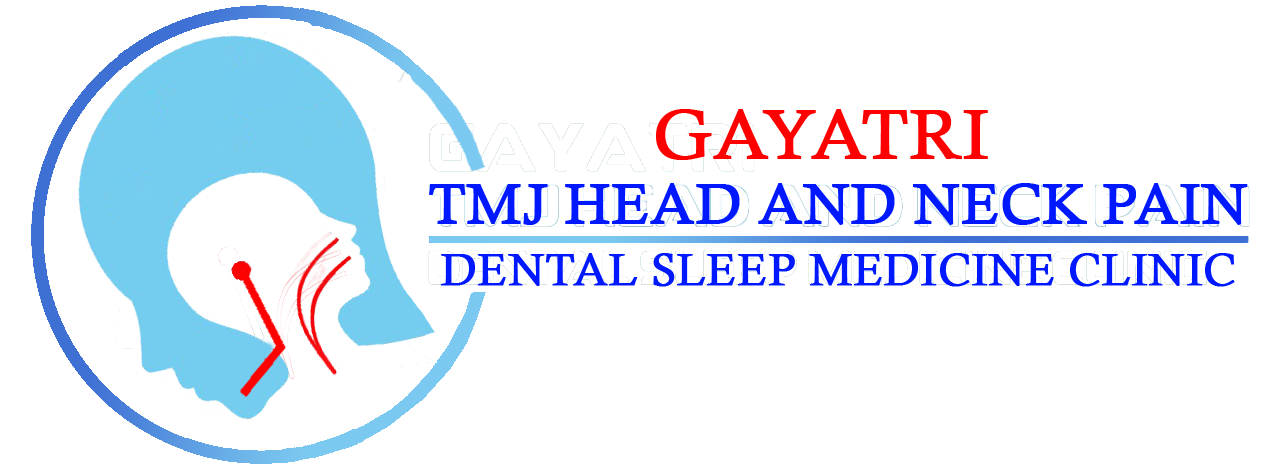Headaches and Migraines:
Many people who have headaches and migraines have tried everything, and they still don’t have relief. It can happen if your headache or migraine is triggered by a TMJ disorder.
When we sleep, we do many things we’re not aware of. For instance, some of us snore, others talk and wrestle pillows, some even walk and eat in their sleep with no memories of it in the morning! Not surprisingly, many of us also grind or clench our teeth while we sleep. Indeed, experts estimate that around 40 million people suffer from excessive teeth grinding, also known as bruxism. Bruxism (Teeth grinding or clenching) can be there even when there is no teeth grinding or grating sound, it can just be like a clench in night without any obvious symptoms. The condition can cause jaw pain, headaches, and even migraines. If you suffer from morning headaches or jaw pain, Teeth grinding and clenching can be the contributing cause.
What Causes Teeth grinding?
The large number of people who suffer from teeth grinding headaches is not surprising when you consider all of the different causes of bruxism. For example, stress and anxiety may cause many people to grind their teeth. More often, however, an abnormal bite and/or missing or crooked teeth results in bruxism. Others find that sleep apnea contributes to their teeth grinding, while for others it’s their Temporomandibular Joint (TMJ) Disorder to blame. Finally, some medications (such as some anti-depressants) list teeth grinding as a possible side effect.

Common Signs of Teeth Clenching and Grinding
No matter what causes you to clench or grind your teeth during sleep, you may experience any combination of these common signs and symptoms:
- Headache upon waking
- Tender points near jaw
- Migraines that respond poorly to other treatment
- Stiff neck in the morning
- Ear pain
- Sinus pressure
- Teeth sensitivity
- Chipped/cracked teeth
HOW TEETH GRINDING AND CLENCHING CONTRIBUTE TO HEADACHES AND MIGRAINES
Our jaws are powerful! They allow us to bite down with about 70 pounds of force per square inch. When we purposefully clench down, our force per square inch can double to 140 pounds per square inch. Some experts estimate that this force increases to 700 pounds of force per square inch when we clench and grind our teeth at night! Clearly, this much force puts a great deal of strain and pressure on your your temporomandibular joint (TMJ) and supporting muscles. Your TMJ muscles span to your jaw, cheeks, and the side of your head. Thus, bruxism over works these muscles to the point of throbbing headache pain, and in some instances, migraines.
Other Effects of Teeth Grinding and Clenching
Headaches may be the first, most noticeable effect of bruxism for many. Others may notice earaches and sinus pain, too, since the TMJ muscles surrounding these structures. The effects of teeth grinding don’t stop there, though. Bruxism can negatively impact the structure of your teeth.
How can we help you for headaches and migraines
- Rule Out Other Causes of Headaches: An examination to find out all possible causes of your heachaches, Migraines and jaw pain
- Assess TMJ Functioning: Part of the exam will involve checking how well your jaw joint functions.
- Assess chances of sleep apnea or sleep disordered breathing
- Assess all muscles of head and neck and rule out any causes of pain
Dr Hemant Soni specializes in head and neck pain, He evaluates all medical, Dental and TMJ related causes that can cause headaches and migraines. So after a thorough examination , he will suggest treatments.
Normally, when a patient visits Dr Hemant soni, they have already tried medicines for the relief, Dr Hemant Soni believes in using minimum medication, rather he tries to identify the cause and use other modalities too so that he can give long lasting relief with minimum medications.He uses oral appliances and other treatments to improve jaw, head, neck muscles and sleep which reduces the triggering of migraine and headaches. Patients typically report of substantial improvements within weeks and are much better in 2 to 3 months.
Book your appointment
